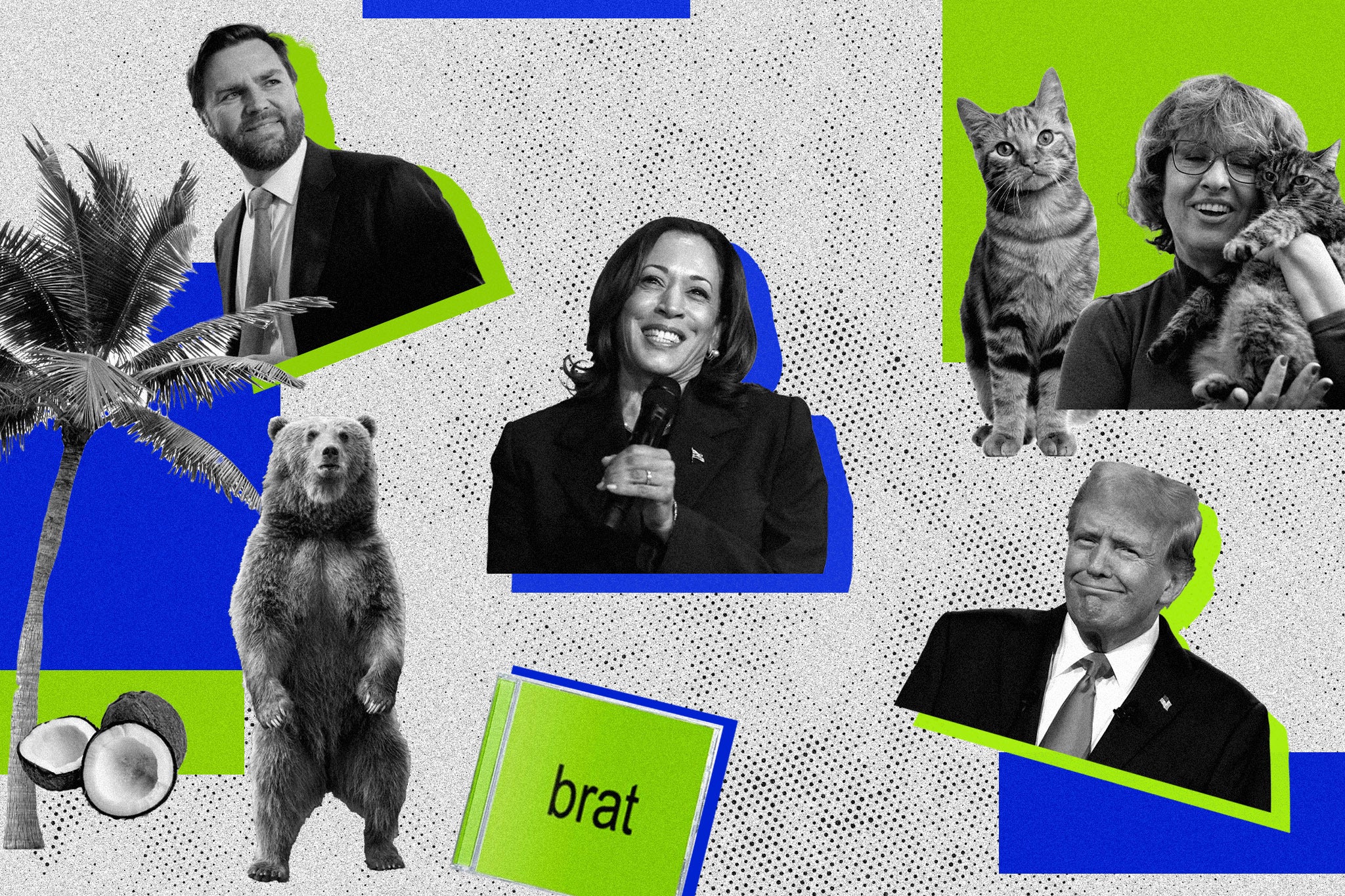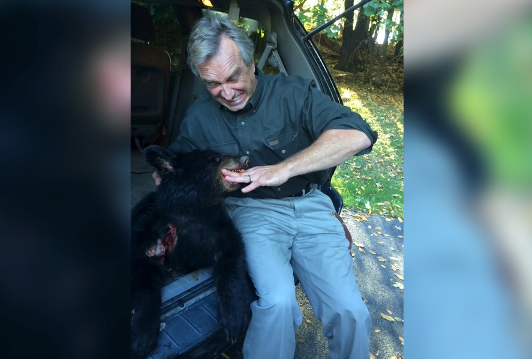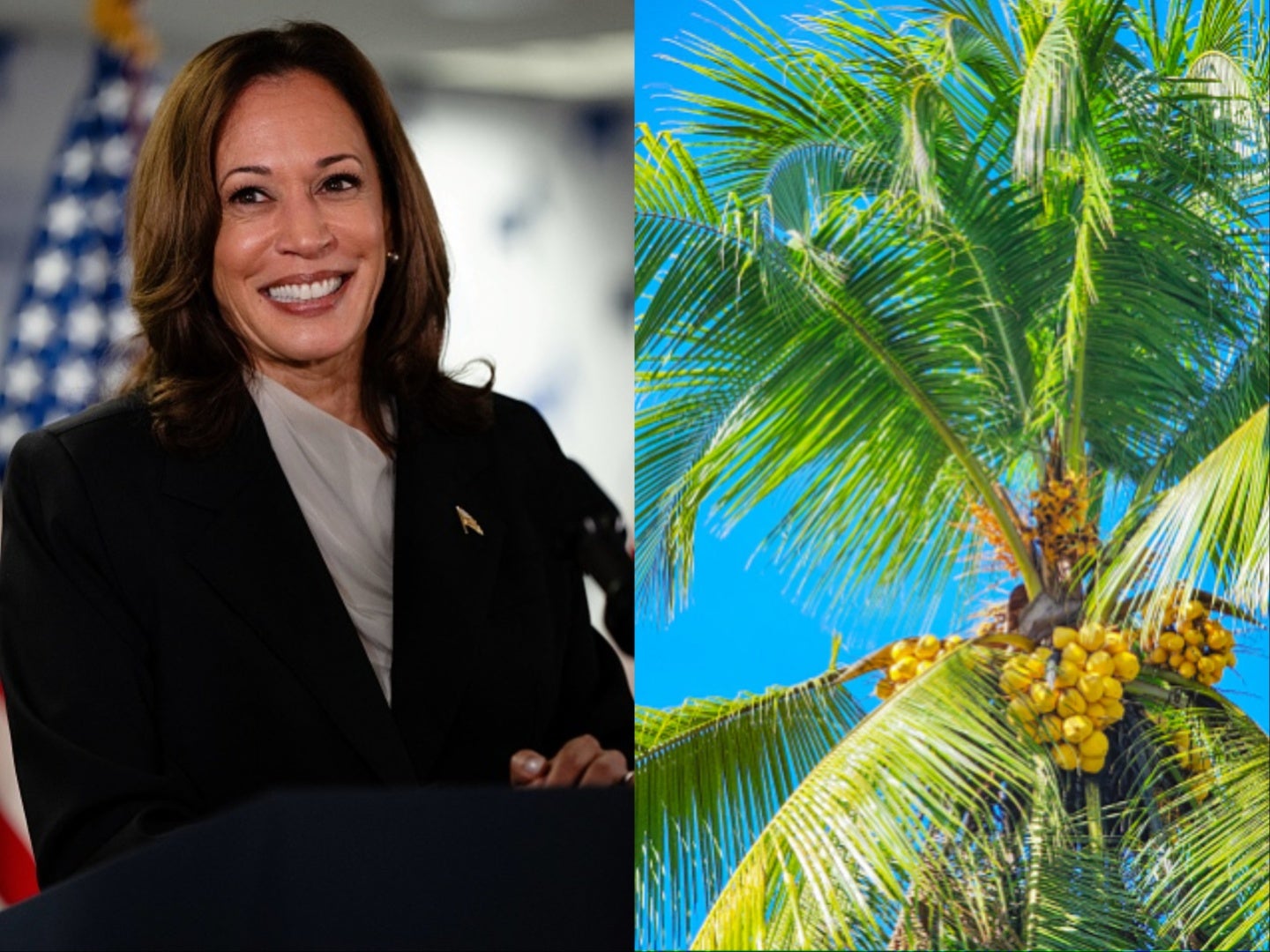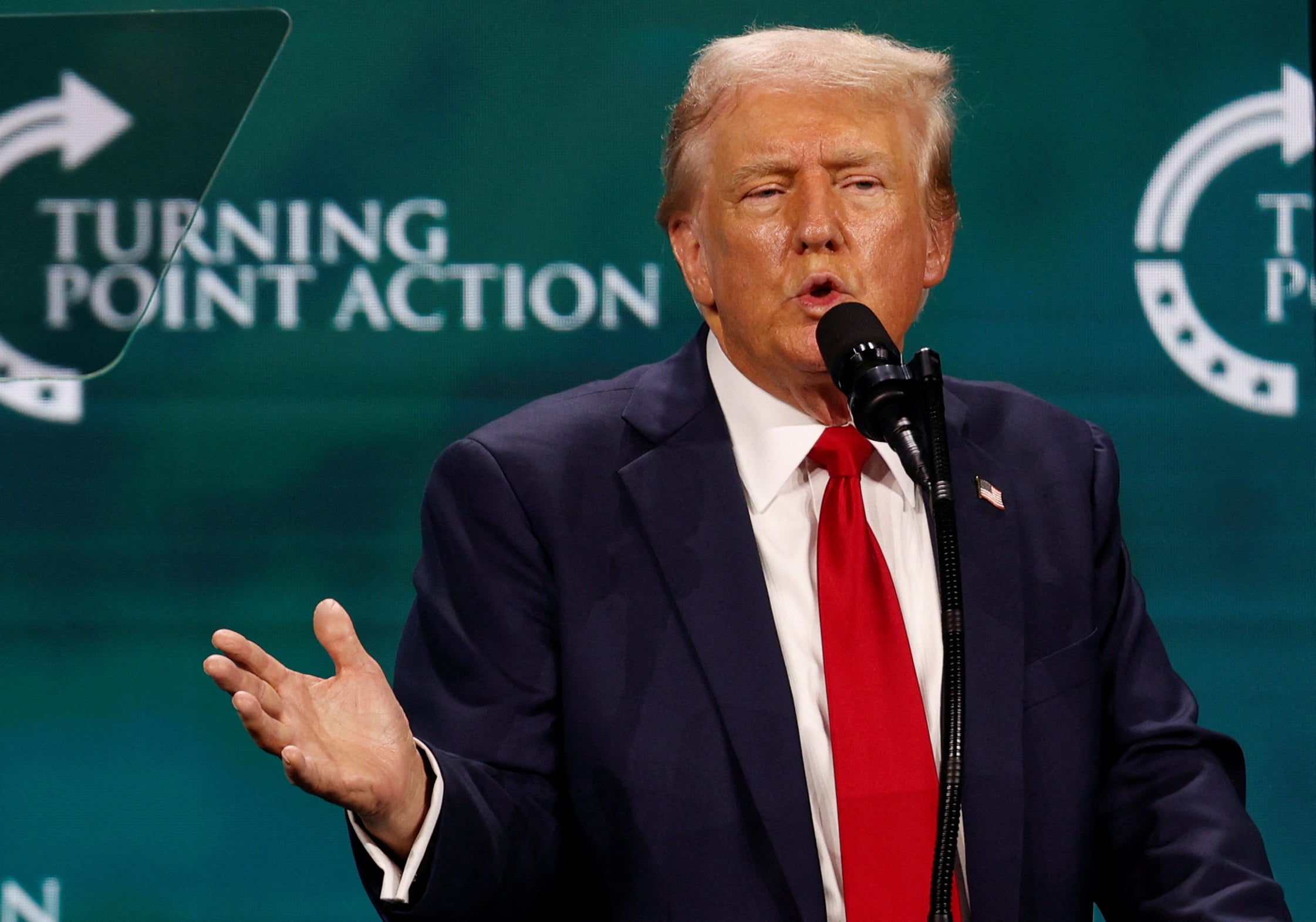We analyzed the biggest buzzwords of election season so far, and the internet loves calling Trump weird
Alicja Hagopian takes a look at the top buzzwords and how they have dominated internet discourse so far


Your support helps us to tell the story
From reproductive rights to climate change to Big Tech, The Independent is on the ground when the story is developing. Whether it's investigating the financials of Elon Musk's pro-Trump PAC or producing our latest documentary, 'The A Word', which shines a light on the American women fighting for reproductive rights, we know how important it is to parse out the facts from the messaging.
At such a critical moment in US history, we need reporters on the ground. Your donation allows us to keep sending journalists to speak to both sides of the story.
The Independent is trusted by Americans across the entire political spectrum. And unlike many other quality news outlets, we choose not to lock Americans out of our reporting and analysis with paywalls. We believe quality journalism should be available to everyone, paid for by those who can afford it.
Your support makes all the difference.The November election cycle is in full swing – and it’s shaping up to be one full of buzzwords and online trends as the competing candidates grapple to pull in votes from the American public.
There’s the term “weird”, which was coined by the new Democratic vice presidential candidate Tim Walz to describe Donald Trump and JD Vance.
There’s “brat”, with Charli XCX’s hit summer album becoming synonymous with Kamala Harris’s campaign.
There’s also the offensive phrase “childless cat ladies” which Vance continues to face backlash over.
Not to mention a whole host of other buzzwords, from coconut trees to bears and Project 2025.
Here, The Independent takes a look at the top buzzwords and how they have dominated internet discourse so far.
Weirdos and brat
Perhaps the most successful labels wielded by the Democrats so far have been “weird” and “brat”.
When President Joe Biden stepped down as the Democratic presidential candidate, many female celebrities were quick to endorse Harris to replace him.
Among them was British pop star Charli XCX, whose sixth album Brat has been her biggest success yet, with Gen-Z women in particular championing the concept of a “Brat summer”.
“Kamala IS brat”, Charli posted on social media. This spurred an online frenzy which led Harris’s campaign HQ to change its background image to the album artwork, and even prompted Fox News hosts to discuss whether they “really want brats to run this country”.
Online searches for “Brat” peaked on 23 July, and are often linked to queries such as “brat Kamala”, “what does brat summer mean”, and even “coconut tree”.
Meanwhile, for the word “weird”, Google Trends shows that the top related searches are now “weird trump”, “vance weird”, “jd vance weird”, “vance is weird” and “walz weird”.
New Democrat VP candidate Tim Walz has been credited with coining the term as a way to describe Republicans, telling MSNBC last month that “these are weird people on the other side. They want to take books away. They want to be in your exam room.”
The Democrats and Harris’s campaign team have since run with the “weird” label, with the super PAC Won’t PAC Down even releasing a video ad campaign titled: “These Guys Are Just Weird.”
The intended effect appears to have worked, since US-based Google searches for the term “weird” are highly linked with JD Vance and Trump.
Cats and crazy ladies and bears, oh my!
Animals seem to have been a bigger trend this election than anyone could have predicted – and for all the wrong reasons.
Just weeks after being chosen as Trump’s VP pick, Vance faced widespread criticism for his resurfaced comments branding Harris and other women “childless cat ladies”.
Google searches for “childless cat lady” began to rise after Biden endorsed Harris and reached a head on July 26, after Jennifer Aniston condemned Vance for his insensitivity and regressive IVF policies.
The phrase is commonly associated with online searches for “Vance childless”, “Vance cat lady”, “Kamala childless”, and “Usha Vance”.

But this is far from the only animal-related buzzwords linked to the election.
In the last few days, “RFK bear” has been searched over 100,000 times, after independent candidate Robert F Kennedy Jr. claimed he dumped a dead bear cub in Central Park in 2014 in a wild video posted on X.
Now, there is a spike in people searching “RFK Jr”, “dead bear”, “bear cub”, and “dead bear in Central Park” – the last of which reveals that yes, the story is true, and it caused a media frenzy in New York a decade ago when no one knew how the bear got there.
Coconut trees and contexts
If there’s a word that has become synonymous with Kamala Harris, it’s “coconut”.
When giving a speech in May 2023, Harris shared an anecdote from her mother, who told her: “I don’t know what’s wrong with you young people. You think you just fell out of a coconut tree? You exist in the context of all in which you live and what came before you.”

The phrase went viral and witnessed a revival after Harris launched her presidential campaign, with a flood of memes and TikToks.
According to Google, some of the top searches associated with “coconut” are “Kamala coconut tree”, “falling out of a coconut tree”, and even “what is project coconut” – a humorous Gen-Z response to the right-wing Project 2025.
The word “context” is also associated with searches for “Kamala coconut tree”, in addition to another notable Harris phrase: “unburdened by what has been”.
“Never Trump” and Project 2025
Vance has appeared quite a few times on this list – but one of the most-searched topics appears to be his apparent former disdain for his running mate.
One phrase in particular has stuck out above the rest, as Vance said on a Charlie Rose interview in 2016 that he was “never a Trump guy”.
Now, as Trump’s VP pick, Vance’s words have come back to haunt him.
Searches associated with the popular phrase “Never Trump”include “Vance never trump”, “jd vance”, and “never trump guy”.
More recently, the phrase has been linked to increased Google searches for “Trump never have to vote again”, referring to Trump’s repeated claim that “you won’t have to [vote] any more” once he is in office.

“Four more years, you know what? It’ll be fixed, it’ll be fine, you won’t have to vote any more, my beautiful Christians,” Trump told a Christian summit.
The implication that Trump may attempt to change the presidential voting system is linked to the broader proposals within the Project 2025 playbook – an initiative from the right-wing think tank Heritage Foundation which aims to reshape the federal government and make executive presidential power stronger under a Trump government.
Despite being proposed in 2022, Google searches for “Project 2025” have only begun to take off in the past few months, reaching a peak on July 9.
Searches for the term reveal people are looking for an explanation about what the initiative is (”what is Project 2025”), though recent spikes in Google searches hone in on specific controversial propositions, including reducing veterans’ benefits.
Join our commenting forum
Join thought-provoking conversations, follow other Independent readers and see their replies
Comments